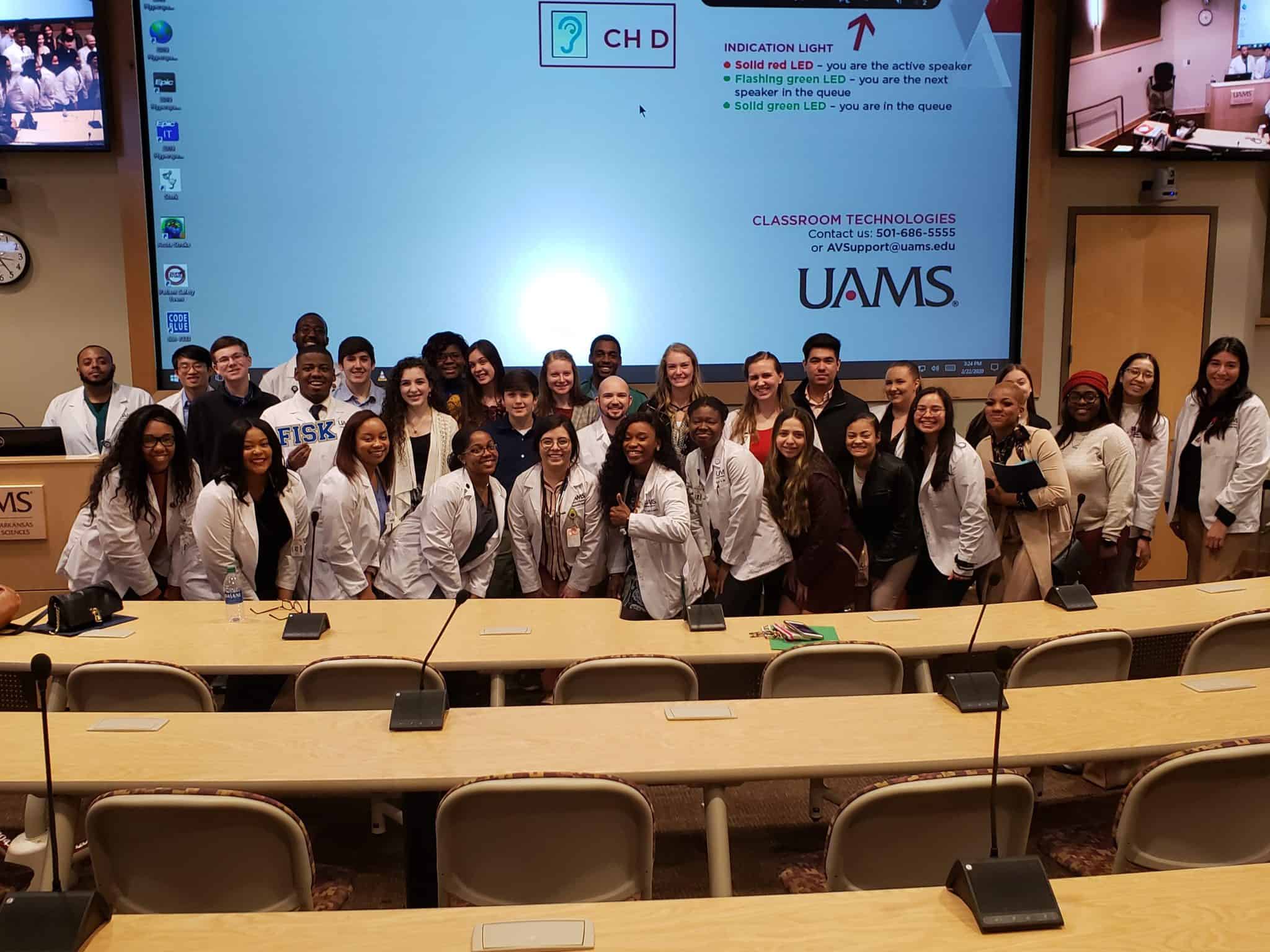View Larger Image

Visiting high school and UAMS medical students gather for a photo during the HPREP event.
Image by SNMA
UAMS Students Introduce High School Visitors to Health Care Careers
| More than 80 UAMS student volunteers, mostly from the College of Medicine, welcomed dozens of high school students from across Arkansas to the UAMS main campus Feb. 22 to introduce them to careers in health care.
The event, called Health Professions Recruitment and Exposure Program (HPREP) was presented by the UAMS chapter of the Student National Medical Association and was chaired by second-year medical student Karime Bolivar.
“The main idea behind HREP is to expose high school students to all of their options. I remember in high school, I had the viewpoint that I go the doctor’s office and I might see a nurse or I might see a tech. But I didn’t know about all these other options available in health care,” such as the variety of work pharmacists do or researchers who never treat patients, she said.
The event featured a lunchtime panel discussion at which students from across UAMS talked about career options.
“That was something we’d never done before,” said Bolivar.
In addition to the lunch discussion, visiting high school students spent the day touring campus escorted by UAMS students, who took them to places like the UAMS Sim Center or the clinical skills center, where they learned about how to conduct a physical, take a medical history, recognize a stroke and so on.
After lunch, there was a chance to visit information tables that addressed things like respiratory therapy, pharmacy, sonography and even graduate school.
“It was a low stakes environment to ask questions and they knew they wouldn’t be judged because we’re students too. I feel like sometimes when you’re placed in a situation with an authority figure, like a professor, it can be intimidating,” said Bolivar. “When I was in high school I was shy, so being in a situation with smaller groups, it felt like more students were able to come out of their shells and ask questions.”
Student volunteers steered visiting students to outreach programs from the UAMS Division for Diversity, Equity and Inclusion, such as summer programs designed to give high school students a multi-week experience of a variety of health care fields.
“When I was younger I definitely didn’t have any experience like this,” said Bolivar.
Numerous studies have shown that increased diversity in health care leads to better patient outcomes, and events like this help promote that.
“Toward the end, some of them came up to us and said they didn’t realize how diverse medicine could be. They didn’t realize there were Hispanic or African American future doctors because their own town was mostly white,” said Bolivar. “One student even said, ‘Now I know that I can go through this journey. I now have the courage to make it through.’ I feel like that was very impactful, because I and my colleagues realized we actually made a difference for someone.”